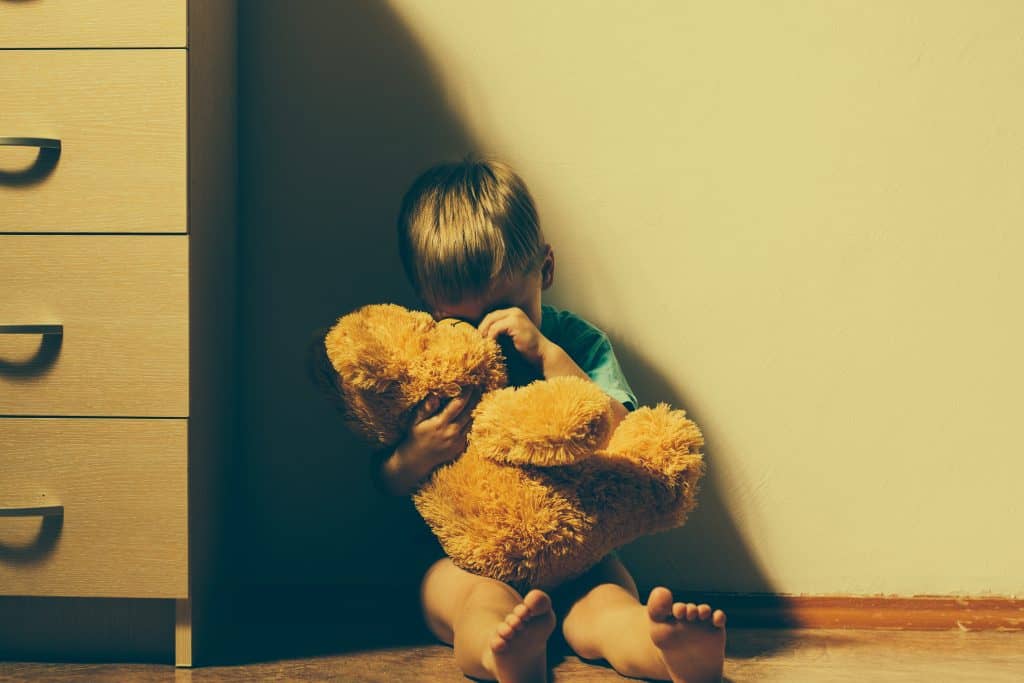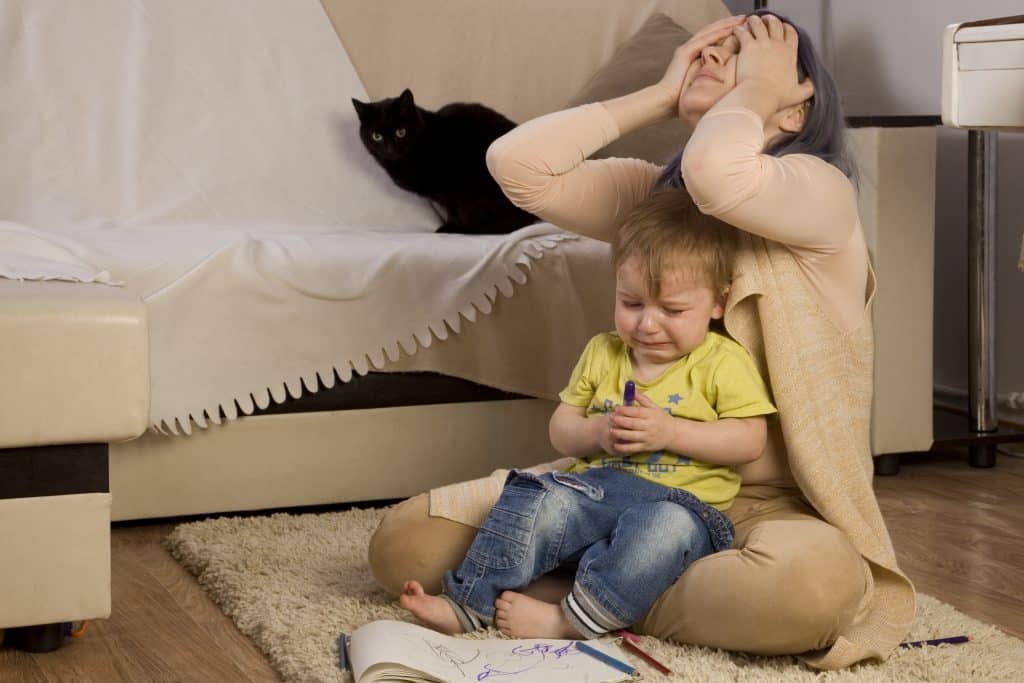Parenting is no easy task, far from it.
And you know it. Even if you do your utmost to provide your child with everything he or she needs (love, attention, toys, etc.), you know that you’re not perfect.
In fact, you make mistakes like everyone else. Sometimes you’re tired and stressed, and you project your emotions onto your child.
But don’t worry! It’s not the end of the world. Everyone breaks down from time to time, but you have to learn to control the expression of your emotions.
But did you know that even your best-intentioned behavior can have harmful consequences for your child’s future?
How can it? Simply because it instills habits that are, in fact, toxic. And this goes far beyond being a bad example for your child.
Children easily learn what adults teach them. This goes for things related to social learning, different skills, good and bad deeds.
If a parent has a habit of having a certain attitude towards others, mistreating others or saying bad words, chances are that their children will understand that this type of behavior is acceptable and will imitate it.
To avoid this type of bad behavior in the future, parents need to set an example for their children.
So here are the behaviors you need to avoid if you don’t want them to come back like a boomerang in your face in the future.
1: “No” is the answer to everything

Some parents can be too restrictive. Some parents’ personalities may include “no” as the answer to many of their children’s requests.
While it’s important to follow rules and behave well, saying “no” to most ideas and wishes can reflect on a child who grows up feeling emotionally rejected or refrains from telling parents information about his or her own life for fear of rejection.
2. Suppressing your child’s emotions

What parents need to understand is that using discipline to ensure a child’s good behavior is one thing, but taming his or her emotions is quite another.
Parents should also avoid minimizing their child’s emotions by saying things like “Men don’t cry” or “Don’t be so dramatic”, etc.
Suppressing a child’s emotions can affect cognitive functions such as memory. To raise a healthy adult, always make sure you don’t repress, but rather understand his or her feelings.
3. Not accepting your thoughts

Some parents end every argument or request with “because I said so”. They don’t recognize their child’s opinion on a subject that concerns them.
Parents need to remember that giving their children the opportunity to express their opinions is a way for them to feel autonomous and responsible for their own decisions.
If this aspect is not taken into account, the adult is likely to refrain from expressing himself or herself, or to feel that he or she has nothing important to add.
4. Encouraging inappropriate behavior

Suppose you, as a parent, saw your child making fun of another child. What would you do? Some would take their son or daughter aside and ask him or her to apologize for being mean.
Others would laugh it off and let the situation continue, as if the child would understand what’s going on.
The downside of this mistake is that the child will understand that the parent is complacent with this type of behavior and will continue to do it himself/herself since he/she hasn’t been reprimanded.
The result could be an adult who is irresponsible for his or her actions or complacent with the bad behavior of others.
5. Not living up to your words and promises

One study found that young children feel they must keep their promises. They also expect others to keep their promises.
That said, parents sometimes promise rewards or actions to a child that are not kept. The child may then think that his or her mother or father is distracted or even incoherent.
This can create an adult who has trust issues or is inclined to focus on safe immediate pleasures rather than expecting long-term rewards.
6. Not apologizing to them

If you’re a parent, you’ve probably lost your temper with your children in a stressful moment, or overreacted to a simple situation.
In such cases, it’s important to take a moment to calm down and apologize sincerely. Take a breath and talk to your child, explaining why you were wrong.
Set an example by acknowledging his or her emotions and saying you’re sorry.
Failing to do so when you’re clearly in the wrong can give the image of someone who doesn’t care about other people’s feelings or doesn’t acknowledge their mistakes.
The result could be an adult who ignores other people’s feelings and doesn’t care about re-establishing meaningful relationships (even if they’re the wrong ones).
7. Not encouraging curiosity

Children are eager to learn. For a child, the world is a place to discover, and nature itself raises many questions.
Parents are naturally the first to ask them. But, unfortunately, due to a crazy daily routine, sometimes the answer to a question like “Why is it raining?” is “That’s just the way it is”.
This kind of answer can be a death knell for a child’s curiosity, discouraging critical thinking.
Later in life, he may become an adult who has no interest in science or in understanding how things work.
8. Always give your child everything

If your child says he wants a toy and the gift is almost always guaranteed, chances are he’ll be spoiled.
By fulfilling your child’s every wish, you’re letting him know that things are easy and that he doesn’t have to work hard.
The same goes for allowances that don’t require chores. By making this mistake, parents risk raising an adult who takes things for granted or makes no effort to get anything.
9. Keeping your child in a permanent comfort zone

It’s not surprising that parents like to keep their children comfortable. They often make decisions to keep their children safe, even in situations where the child faces difficulties in becoming independent.
By ensuring that your child is always used to staying in his comfort zone, you risk turning him into an adult who is afraid to make his own decisions or take risks, which can be important for his career later on.

